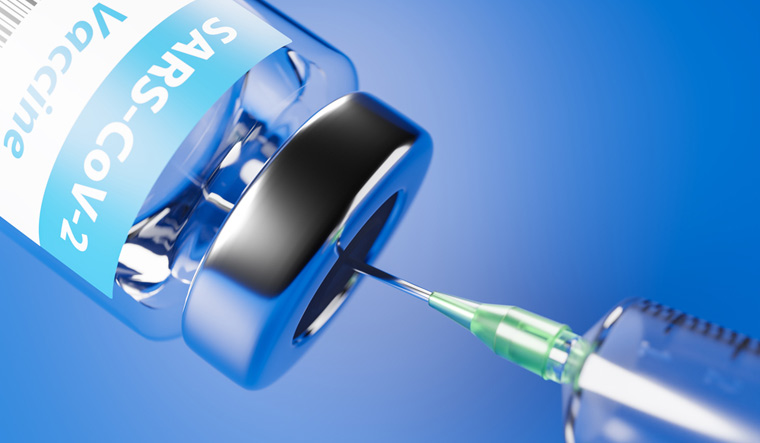Five sites across the country are ready for the third and final phase of human trials of the Oxford-AstraZeneca COVID-19 vaccine, numerous media reports claimed. The Serum Institute of India, the largest vaccine maker in the country, has been chosen by Oxford and pharma giant AstraZeneca to manufacture the vaccine once it is ready. Trials results for the first two phases were published earlier this month.
"This is an essential step because it is necessary to have data within the country before the vaccine is administered to Indians," Department of Biotechnology (DBT) Secretary Renu Swarup told PTI. According to Swarup, the DBT is part of any COVID-19 vaccine effort in India whether it is funding, whether it is facilitating the regulatory clearances or whether it is giving them access to different networks which exist within the country. "The DBT is now setting up Phase 3 clinical sites. We have already started working on them and five sites are now ready to be available for Phase 3 trials," Swarup told PTI in a telephonic interview.
Vaccine testing is a four-stage process—pre-clinical testing on animals; phase I clinical testing on a small group of people to determine its safety and to learn more about the immune response it provokes; phase II trials, or expanded safety trials, where dosage and frequency will be tested across wider cross-sections of the population; phase III large-scale tests where the vaccine is administered to thousands of people to confirm its efficacy. Phase I and phase II are the early trials, which will then be followed by a rigorous, intensive phase III clinical testing, where the longevity of the vaccine response (whether the vaccine will last for long periods of time) will be analysed.
The Pune-based SII had earlier sought permission from the Drugs Controller General of India (DCGI) for conducting phase II and III human clinical trials of the potential vaccine. It had said earlier it will start manufacturing the vaccine even before the final nod so it is ready with sizeable volumes once the vaccine gets all permissions.
On July 20, scientists announced that the coronavirus vaccine developed by Oxford University appears safe and induces a strong immune response within the body after the first phase of "promising" human trials against the pandemic. Doses of the vaccine were given to 1,077 healthy adults aged between 18 and 55 in five UK hospitals in April and May as part of the phase I clinical trial and results, published in The Lancet medical journal. The results show they induced strong antibody and T-cell responses for up to 56 days after they were given. T-cells are immune responses by the body against the foreign virus, and are crucial for maintaining protection against the virus for longer periods of time. Scientists behind the trials found the response could be even greater after a second dose.
At least seven Indian pharma companies are working to develop a vaccine against coronavirus as they join global efforts to find a preventive to check the spread of the deadly virus that has already infected more than 14 million globally. Bharat Biotech, Serum Institute, Zydus Cadila, Panacea Biotec, Indian Immunologicals, Mynvax and Biological E are among the domestic pharma firms working on the coronavirus vaccines in India.
Bharat Biotech has started phase I and II human clinical trials for its vaccine candidate COVAXIN, that has been developed and manufactured in the company's facility in Hyderabad.
Pharma major Zydus Cadila has said that it is looking to complete clinical trials of its COVID-19 vaccine candidate ZyCoV-D in seven months. The company had last week started clinical trials of its COVID-19 vaccine candidate with the first human dosing. Depending on the study outcomes, and if the data is encouraging, and the vaccine is found to be effective during the trials, it could take a total of seven months for the trials to be completed and for the vaccine to be launched, Zydus Cadila Chairman Pankaj R. Patel had said in a statement.
-Inputs from PTI


